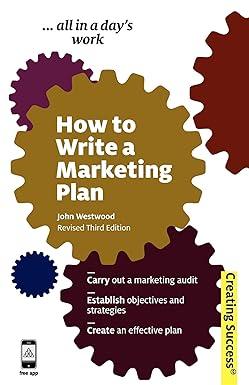Question
1. All operating budgets should contain revenue and expense components. a. True b. False 2. Evaluating the value chain and capacity issues are not part
1. All operating budgets should contain revenue and expense components.
a. True
b. False
2. Evaluating the value chain and capacity issues are not part of the budgeting process.
a. True
b. False
3. A budget can contain only financial information.
a. True
b. False
4. Budgets are plans of action based on forecasted transactions, activities, and events.
a. True
b. False
5. Budgets assign resources and the responsibility to use them wisely to managers who are held accountable for their results.
a. True
b. False
6. Operating budgets are plans used in daily operations.
a. True
b. False
7. A master budget consists of a set of operating budgets and a set of financial budgets for a specific accounting period.
a. True
b. False
8. Operating budgets are limited to service organizations.
a. True
b. False
9. Managers do not need to know why a budget is being prepared, as these are prepared by higher authorities.
a. True
b. False
10. The budgeting function begins with the preparation of a production budget.
a. True
b. False
11. The direct labor budget is needed to prepare the production budget.
a. True
b. False
12. The selling and administrative expense budget is typically separated into variable and fixed cost components.
a. True
b. False
Step by Step Solution
There are 3 Steps involved in it
Step: 1

Get Instant Access to Expert-Tailored Solutions
See step-by-step solutions with expert insights and AI powered tools for academic success
Step: 2

Step: 3

Ace Your Homework with AI
Get the answers you need in no time with our AI-driven, step-by-step assistance
Get Started


